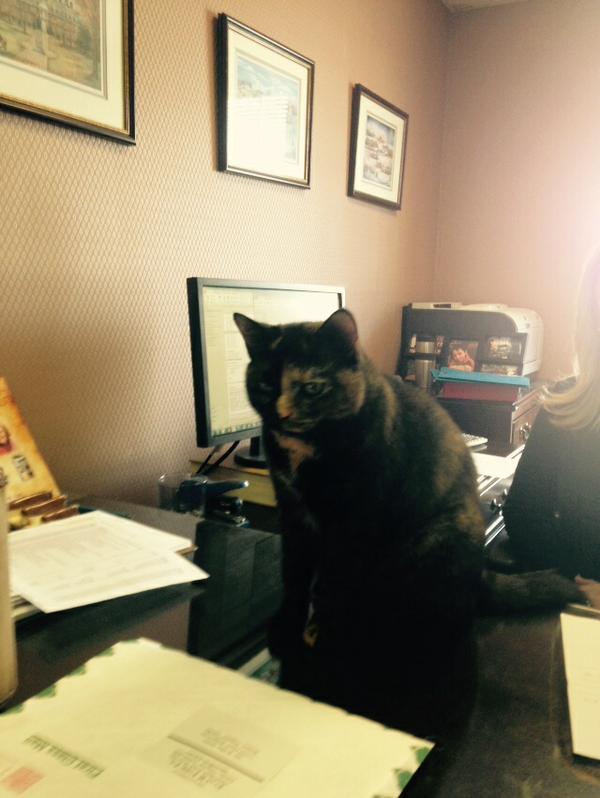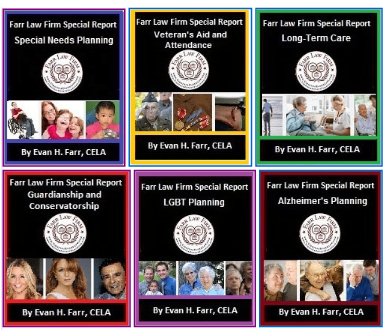|
What Happens When Caregivers Are Too Sick To Perform Their Duties?
If you cannot view the image below, please read the article on our blog.

Q. I am a caregiver for my husband, Ed, who has had Parkinson’s disease for fifteen years. While fully coherent, his physical capabilities have been greatly reduced. Confined mainly to a wheelchair, he requires my help to dress, shower, toilet, walk, and exercise, and has trouble communicating and swallowing food.
Normal routine has set in, but unforeseen circumstances can sometimes occur. Although I take vitamins and exercise regularly, sometimes I wonder: What if I fell and broke my leg, and my husband and I were both immobile? What if I got Alzheimer’s and no longer had my wits about me? Last year, I had the flu for a week during a time when our respite care worker was unavailable, and my daughter left her own family and took a costly emergency flight from California to help. We can’t expect her to do that every time.
Do you have any suggestions for a caregiver, for when they fall ill themselves and can’t perform their duties?
A. Caregiving brings up a lot of difficult emotions. Not surprisingly, the high stress of caregiving (often called “caregiver burnout”) greatly increases the likelihood of serious health problems in the caregiver.
A recent survey conducted by the UCLA Center for Health Policy Research found that nearly a third of the estimated 3 million-plus informal caregivers in California reported emotional stress so severe it disrupted their lives. The same study found that nearly 75% of the middle-age caregivers were overweight or obese, and a proportion of them already have chronic health problems: Nearly 10% have diabetes; more than 6% have heart disease; more than 34% have hypertension. These caregivers will likely need their own caregivers if their health deteriorates.
In addition, if a caregiver is experiencing chronic emotional stress, it can affect virtually every organ system in negative ways, according to NIH. Prolonged stress has been shown to cause numerous health problems, such as high blood pressure, panic attacks, backaches, sleep disorders, and more.
So if you’re a caregiver, it’s very important to keep a close watch on your health, both physical and emotional. The strategies below should help make caregiving easier and less stressful, so you are less likely to fall ill yourself:
- List your tasks — and get help when you need it: Get it all down on paper so you can clearly see the big picture. Then, don’t be ashamed or afraid to ask for help with specific tasks from a sibling, a neighbor, or someone in your church, synagogue, or mosque, or from a respite care professional.
- Put yourself on the to-do list: Your own health can suffer when you cut corners on your own self-care practices to make time for all the other things you’re trying to juggle. Therefore, you need to put self-care -- such as exercising or meditation -- on your list and treat it like any other important appointment. If you don’t know how to meditate, please click here for an excellent free e-book that will quickly explain the benefits of meditation, and quickly teach you with several different meditation techniques.
- Sign up for respite care — and use it: Every once in a while, you will need a few hours, a few days, a week— to decompress. That’s where respite care is invaluable, whether it means another relative who steps in temporarily, a professional aide who comes into the home for a brief time, or a geriatric care facility that’s set up for short stays.
- Take mini-breaks during the day: Don’t wait for respite care to give yourself a breather. Building a few 10-minute breaks into your day can work wonders. Use the time to meditate, listen to music, or take a quick walk (even if it’s just around the house).
- Find someone to talk to, when needed: Talking about your situation to a listening ear can relieve an enormous amount of pressure. Vent to a friend. Talk to a therapist. Even better, join a support group so you can connect with others in your same position. You can find Internet-based groups through ElderCare Online’s Caregiver Support Network and the Caregiver Action Network.
- Strengthen your relationships: Hard conversations (and decisions) go easier when adult children, parents, and siblings feel like they’re on the same page. When bolstering those relationships, include frank discussions about caregiving and end-of-life wishes, so you don’t have to embark on them during an emergency. Make sure your loved ones have indicated their wishes in their estate planning documents.
Although you may be taking preventative measures, such as eating right, exercising, and meditating, you never know when there will be a challenge, such as an illness. Therefore, it is wise to be prepared in advance.
In case you get sick, be prepared:
- Keep a two-week supply of medications in proper containers to correspond with times of day for dispensing.
- Prepare a list of responsibilities by time of day so that someone taking your place will know what is required.
- Don’t be afraid to call emergency medical personnel if you are really in trouble and isolated
- Keep extra meals in your freezer to cover several days and keep handy the names of restaurants that deliver.
- Prepare a list of the contact information of people to call for help, beginning with those who might stay the longest, including others who could offer even an hour or two. Be sure to discuss this plan with the people on your list and make them familiar with your needs.
- Make long-term plans for your loved one, should you become seriously ill or worse.
- Make sure you have your medical records and those of your loved one updated and easily available.
- Work with an experienced elder law attorney (preferably a Certified Elder Law Attorney such as myself) to ensure that the Incapacity Planning documents, such as an Advance Medical Directive and Financial Power of Attorney, are in place.
- Consider Medicaid Asset Protection using our Living Trust Plus™ Medicaid Asset Protection Trust so that if something happens to you, and your loved one suddenly needs nursing home care, at least your loved one will not have to go broke paying privately for nursing home care.
Caregivers: Take Care of Yourself
At The Law Firm of Evan H. Farr, P.C., we recognize that caring for a loved one strains even the most resilient people. We commend all you caregivers -- strong, courageous, and committed to providing long-term patient care. We hope you take advantage of services that offer respite and support.
Remember, part of taking care of yourself is planning for your own future and as well as for the future care needs of your loved one. To make an appointment for a no cost consultation, please contact us.
Fairfax Elder Law: 703-691-1888
Fredericksburg Elder Law: 540-479-1435
Rockville Elder Law: 301-519-8041
DC Elder Law: 202-587-2797
-----
Critter Corner: Caregiving for a Veteran- Programs Mentioned at WHCOA

Dear Commander Bun Bun,
In Mr. Farr’s recent article on the White House Conference on Aging (WHCOA), he talked a lot about caregiving, but didn’t mention anything about veterans, in particular. Can you elaborate on anything discussed at WHCOA that has to do specifically with caregiving and veterans?
Thanks for your help!
Cara Giver-Foravett
----
Dear Cara,
Thanks for pointing that out! Veteran’s Administration (VA) Secretary, Bob McDonald, took part in the national discussion around aging and shared how the VA supports older veterans at the 2015 White House Conference on Aging. Below are some key points from his discussion about VA programs, services, and supports that empower veterans to remain healthy, happy and safe as they age:
- Clinical programs: The Office of Geriatrics and Extended Care offers a continuum of clinical programs that can address the unique health care needs that often accompany aging. These programs are found across all health care settings within the VA (e.g., hospital, outpatient clinic), as well as out in the community and in veterans’ homes.
- Home and community-based programs, such as Home Based Primary Care, are particularly important for enabling many veterans to remain in their own homes and continue to be around their loved ones. For a complete listing of programs and information on how to decide what programs might be best for you or a loved one, visit http://www.va.gov/GERIATRICS/index.asp
- Supporting caregivers at home: Caregiver Support Coordinators (CSC) at each VA medical center serve as clinical experts on caregiver issues and are knowledgeable of both VA and non-VA support services and benefits available for older Veterans and their family caregivers. VA has a National VA Caregiver Support Line (CSL) (855-260-3274), which serves as a resource for caregivers of veterans.
- Monthly Education Calls for Caregivers: Caregivers who are caring for older veterans engaged in VA healthcare are invited to participate in monthly education calls. With an overarching theme of “Care for the Caregiver,” groups are held three times each month, with a different topic of discussion each month.
- Online Workshop for Caregivers: Building Better Caregivers™ (BBC), a 6 week online workshop, is available to caregivers of older Veterans who have dementia, memory problems, post-traumatic stress disorder, a serious brain injury, or any other serious injury or illness. BBC helps caregivers in two key ways: it offers training in how to provide better care, and helps caregivers learn how to manage their own emotions, stress and physical health. Following the completion of the 6 week workshop, caregivers are invited to join the BBC Alumni Community for on-going support and resources.
To find out more about VA’s Caregiver Support Program or to find the closest Caregiver Support Coordinator, please visit www.caregiver.va.gov. At www.caregiver.va.gov you will also find a description of more than two dozen programs for all caregivers, training tips, and advice on caregiving, including the importance of taking time to take care of yourself.
Did you know that later this year, all veteran’s benefits will be on one Website? You can read more about this and the Veteran’s Aid and Attendance benefit in our recent blog post.
Hop this helps,
Commander Bun Bun
----------
Sign up for our FREE Special Reports and get the answers to your burning questions! Just click on a cover below!

|
| Special Offer |
|
We’re Giving Away My Best-Selling Books – Click Here to Find out Why and to Get Your Free Copies
|
| |
| Find Us |
|
|
| Upcoming Events |
|
Our upcoming Living Trust Plus: How to Protect Your Assets from the Expenses of Probate and Long Term Care seminars are on August 1 or September 5 in Fairfax.
----------
|
Article Reprint Authorization
|
We invite you to reprint our articles to bring helpful content to your readers, with the following guidelines:
-The article is to be printed in its entirety;
-Additions, deletions, or changes in the text, title or illustrations may not be made;
-Credit is given to The Law Firm of Evan H. Farr, P.C., as the original source.
Example:
Source: Reprinted from The Law Firm of Evan H. Farr, P.C. Newsletter (www.FarrLawFirm.com).
|
|
Mailing Address
|
Fairfax:
10640 Main Street
Suite 200
Fairfax, VA 22030
703-691-1888
Fredericksburg:
511 Westwood Office Park
Fredericksburg, VA 22401
540-479-1435
Rockville, MD:
1 Research Court
Suite 450
Rockville MD 20850
301-519-8041
Washington, DC:
1425 K Street, NW
Suite 350
Washington, DC 20005
202-587-2797
|
|











